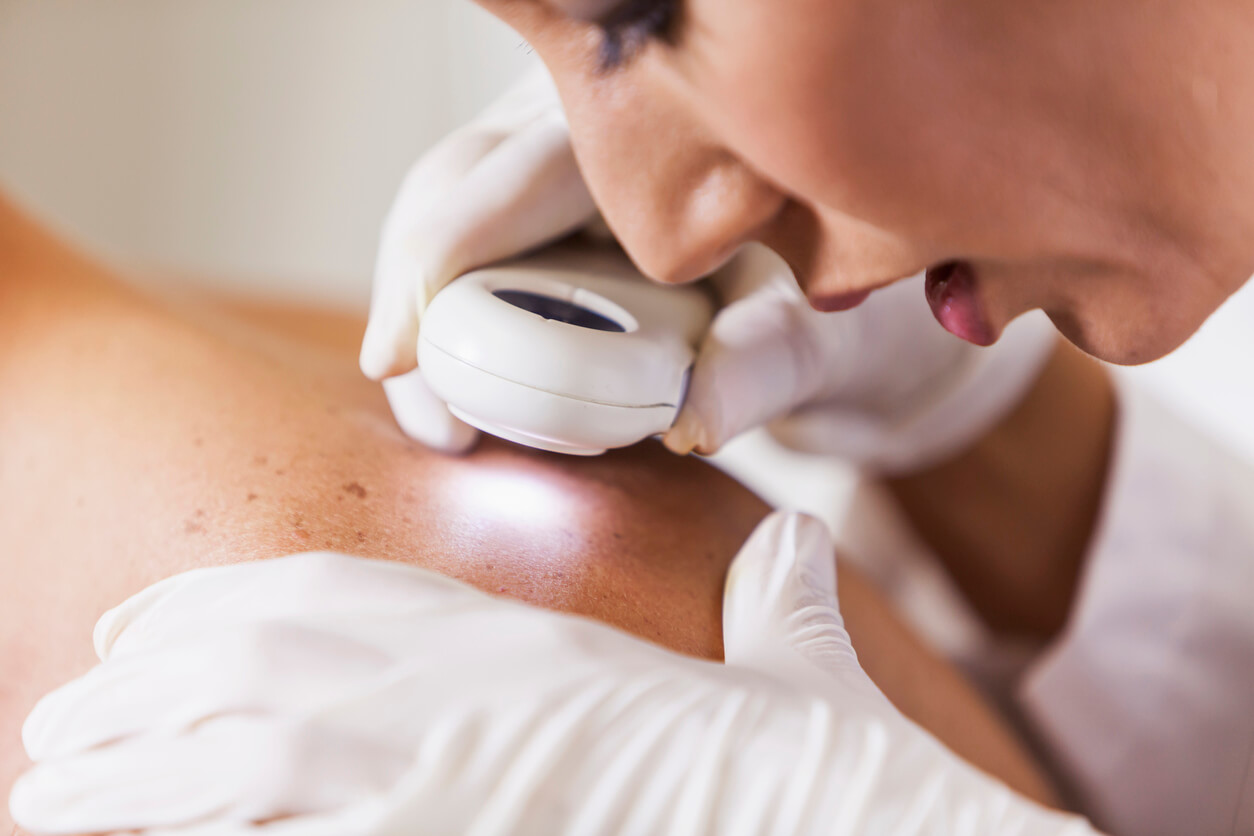According to the American Dermatology Association, skin cancer is the most common cancer, affecting almost one in five Americans. Many skin features that seem harmless may be a sign of skin cancer. It helps to see a skin cancer specialist regularly for early detection and prevention of this disease or treatment, if necessary.
Visiting a skin cancer specialist may be daunting at first. However, you can prepare yourself by knowing what will happen during your visit. Here’s a guide of what you can expect when visiting a skin cancer specialist to help ease your worries.
Topics To Discuss With Your Doctor
During your first appointment with a skin cancer specialist, you will answer numerous questions, usually about the following:
- Your symptoms
- When and how often symptoms occur
- Severity of symptoms
- Your history of sun exposure and sunburns
- Current lifestyle
- Current skin regimen
Lifestyle Factors
Your lifestyle can increase the risk of skin cancer. Thus, you have to be open about your activities. Your doctor may ask you about tanning, working outdoors, and other activities related to excessive UV exposure.
Health History
Your doctor may ask you to describe how your skin reacts to prolonged sun exposure. Additionally, you may have to disclose immune diseases. A weakened immune system is also a risk for skin cancer.
Health history also matters. So, make sure you list down your ongoing medications and supplements as your doctor may inquire about these. Immunosuppressants are also worth mentioning to your skin cancer specialist.
Skin cancer, especially melanoma, can also be passed on genetically. So, you should also mention if you have a blood relative with skin cancer.
Possible Diagnostic Tests
An interview about your symptoms and risk factors is not enough for a substantial diagnosis. So, your doctor may require diagnostic tests, like a biopsy or skin test.
Skin Test
Before the skin test, you will have to remove all your clothing and wear a gown. It’s best to not wear any makeup, jewelry, or accessories during the skin test. If you have braces or bandages, you can ask the clinic’s staff for assistance.
Your doctor will examine your entire body from head to toe during the skin test using handheld magnification and bright light. Skin specialists usually have a specific pattern they follow to ensure that your entire body is inspected.
Biopsy
Should they find any suspicious growths on or in your skin, your doctor will perform a biopsy. They’ll first take a picture of the suspect site, then provide you with some form of anesthesia. Once your skin is numb, your doctor will take a tissue sample of the suspicious growth and the surrounding skin. The sample will be analyzed in a lab to determine what it is.
You may hear about your biopsy results in a few days or weeks. The results will confirm whether or not you have skin cancer. Additionally, the biopsy results will also identify the type of cancer you may have.
Treatment Options
If the results confirm cancer, you’ll visit your skin cancer specialist for a briefing of your treatment options. Here are just some of the treatments your doctor may discuss with you.
Mohs Surgery
One of the more advanced procedures for the removal of skin cancer is Mohs micrographic surgery. This procedure removes the entire cancerous growth while minimizing the amount of healthy tissue removed.
The best thing this treatment has to offer is its same-day wound reconstruction. While this process may take hours, you will only receive local anesthesia. You can ask your skin specialist if you can bring a book or electronic device to keep you occupied during the procedure.
Like most surgical procedures, there are many preparation steps involved. So, ask your doctor what you need to do before this outpatient operation.
Freezing
Cryotherapy involves freezing the affected area with liquid nitrogen. The affected tissues then die and fall off. Freezing is suitable for small cancerous growths.
Radiation Therapy
Radiation therapy utilizes X-rays and other high-energy beams to kill cancer cells. This treatment option is usually for aggressive types, such as BCC and SCC. Melanoma in the head, neck, or near lymph nodes can also benefit from radiation therapy.
Chemotherapy
Chemotherapy is usually for melanoma or skin cancers that have metastasized. It utilizes oral and topical drugs to eliminate cancer cells. Like radiation therapy, this treatment may require a number of sessions.
Skin Cancer Specialist In Northeast Georgia
When visiting a skin cancer specialist, you can expect a comprehensive review of your symptoms, health history, and lifestyle choices. You can also expect a thorough skin test and a biopsy for a more comprehensive diagnosis.
At Georgia Skin Cancer and Aesthetic Dermatology, our specialists have a wealth of experience providing compassionate diagnosis and treatment for a variety of skin-related conditions, including skin cancer. Our clinic also has one of the few doctors who received fellowship training in Mohs surgery.
Should you need a diagnosis, treatment, or other services for skin cancer, feel free to schedule an appointment with us. We have numerous locations for your convenience. If you have questions, you can call us at 706-543-5858.
